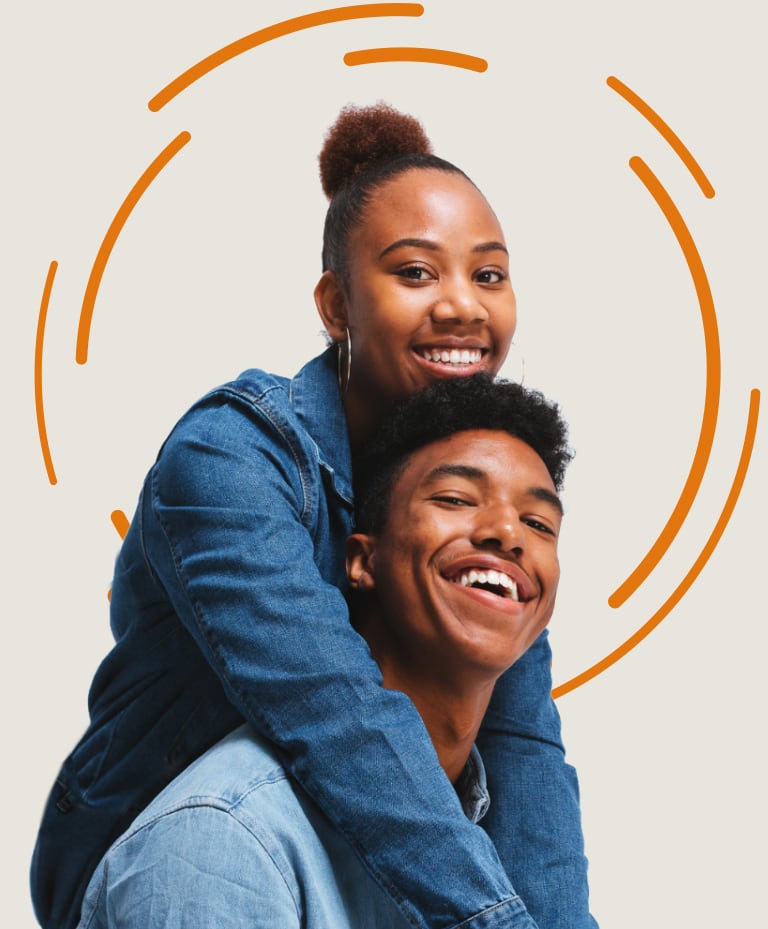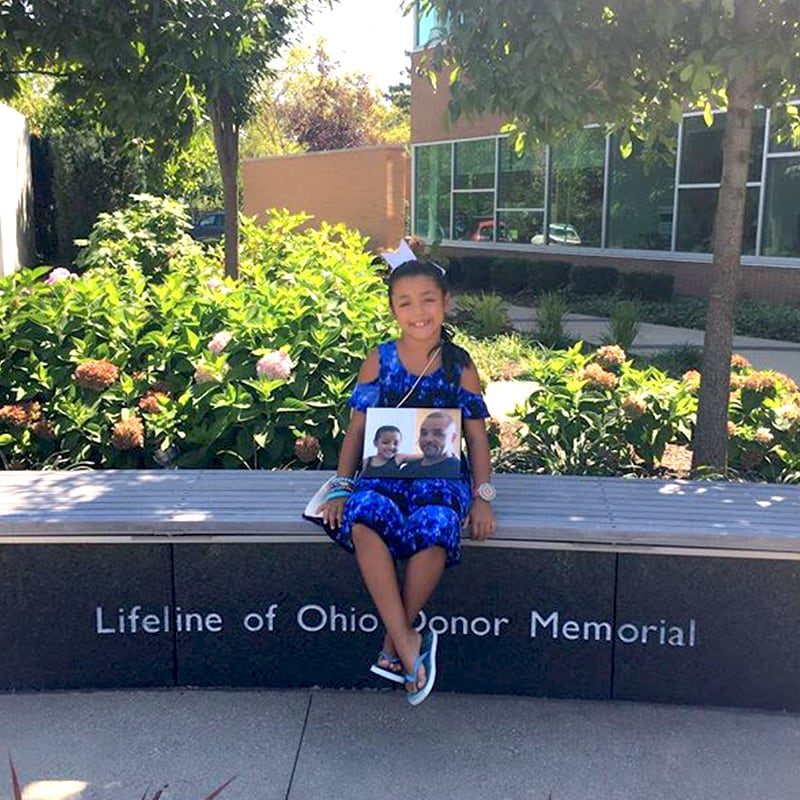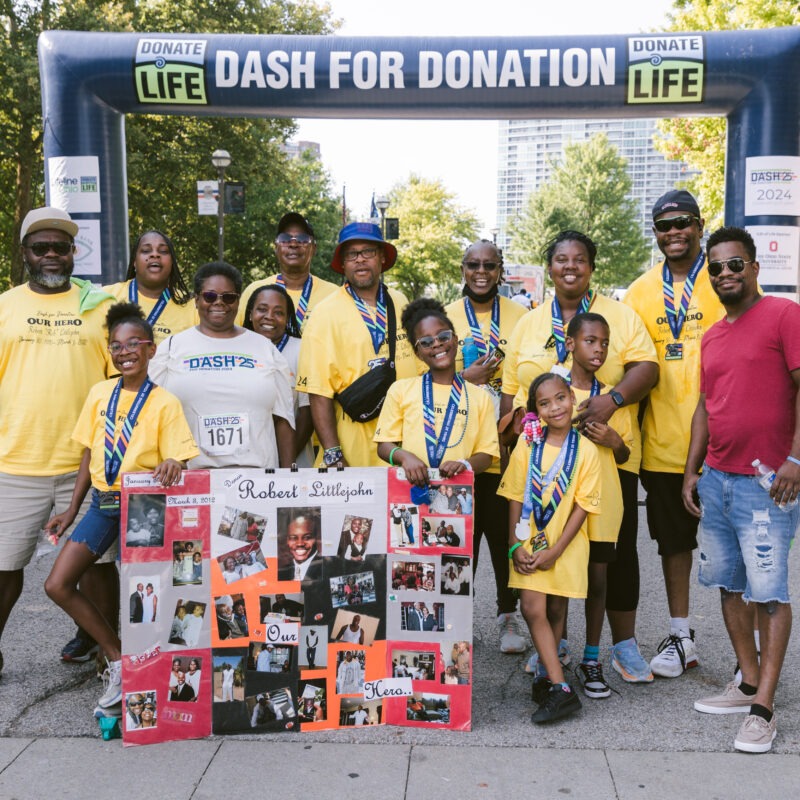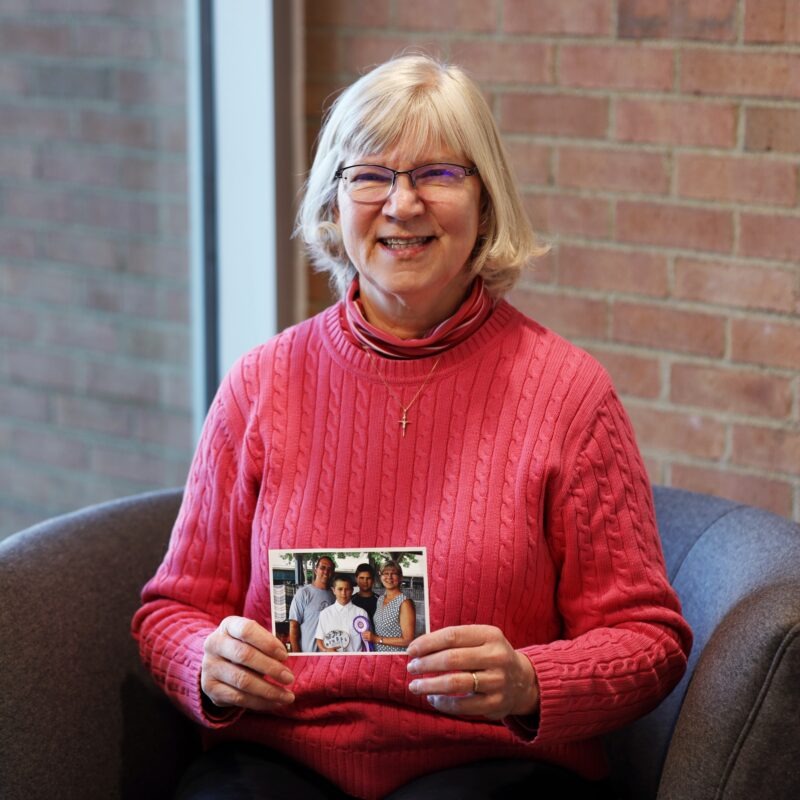
Make a difference
You have the power to make a difference in someone else’s life. One decision can leave a legacy for generations to come and impact many you may never meet.
It takes less than two minutes to register to save and heal lives. Registering as a donor means that upon your death, you agree to become an organ, eye and tissue donor to potentially save eight lives through organ donation and heal more than 75 through tissue donation.
After registering, it is important to share your decision with your family.

Three easy ways to register
Tell your family and friends about your donation decision. It’s a very important conversation.

To register in West Virginia
Individuals can register to be a donor online or when receiving or renewing their West Virginia driver’s license, permit or state identification card at the DMV. A person can also register when receiving their hunting and fishing license.
Registering as a donor means that upon your death, you agree to become an organ, eye and tissue donor to potentially save eight lives through organ donation and heal more than 75 through tissue donation.
After registering, it is important to share your decision with your family.

National Donate Life Registry
Donate Life America manages the National Donate Life Registry. Registering your decision to be a donor in the National Donate Life Registry ensures your donor registration travels with you, no matter where you live or move across the country.
When you register in the National Donate Life Registry, it is an individual’s first-person authorization for the gift of their organs, tissues and corneas upon their death.
You can remove your registration or specify more detailed donation preferences at any time at RegisterMe.org.
Ohio Governor Mike DeWine Encourages Ohioans to Register
Donor parents Ohio Governor Mike DeWine and First Lady Fran DeWine share this very special message encouraging all Ohioans to register their decision to be an organ, eye and tissue donor. Their daughter Becky was a tissue and cornea donor who healed many through her gifts of donation.
Common Questions About the Registry
How do I remove myself from the registry?
In Ohio:
In Person at the BMV: Tell the BMV clerk you do not want to remain in the Ohio Donor Registry when you renew your driver’s license, permit, identification card, or motor vehicle registration.
Online: You can remove yourself, check your donor status or edit your donation decision during your online transaction or by going online to the BMV website (see instructions below). Please note: If you update your donation registration status online through the Ohio Donor Registry, your record will be updated, but the indicator on your physical license, permit or identification card will not be added or removed until a new physical card is issued.
Step-by-step Online Instructions:
- Click on the following link and login as a “Guest”: Ohio BMV – Online Services
- Once you complete the login information, a disclaimer will pop up. Click “Agree.”
- On the next page at the bottom of the screen, you can either “Print” (a copy of your record) or “Change My Donor Status” (to change your option).
- If you change your status, you must make a selection and hit “Submit” at the bottom of the page for your change to be updated.
- If you change your status, you can “Print” a copy of your record after your change has been made (button is located on the lower left side of the screen).
- After changing your selection, hit “Continue” to close the process.
- Changes made online directly through the Ohio Donor Registry are effective immediately.
Fill out and mail in an enrollment form: You can use this link to access the BMV form which must be filled out completely and mailed to the BMV for processing. Normal processing time is about 5-7 business days from the date the BMV receives the form. No confirmation document will sent, but you may visit the BMV website to check your donor status at any time.
Need Help? Contact the Ohio BMV at Ohio BMV for chat and email, or by phone at 844-644-6268 (844-OHIOBMV) if you have issues with the BMV website or accessing your donor record.
In West Virginia:
- In Person at the DMV: Tell the DMV clerk you do not want to remain in the West Virginia Registry and update the paperwork provided when you renew your driver’s license, permit or identification card
- Online: You can remove yourself, check your donor status or edit your donation decision during your online transaction or by going to the WV DMV website. Please note: If you update your donation registration status online through the West Virginia Donor Registry, your record will be updated, but the indicator on your physical license, permit or identification card will not be added or removed until a new physical card is issued.
- Hunting and Fishing License: Please visit the National Donate Life Registry to remove yourself. Then, a person must notify the WV DNR to get a new hunting and fishing license without the symbol on their license. Call 304-558-6200 (select option 1) between 8:30 a.m. – 5:00 p.m. Monday to Friday or email WVDNRCustomerService@wv.gov.
In the National Donate Life Registry:
You can update or remove your registration, or specify more detailed donation preferences, at any time by logging in to your donor registration record in the National Donate Life Registry at RegisterMe.org.
Your state donor registry and the National Donate Life Registry will be checked online by donation professionals if the opportunity for donation exists. Your most recent donor registration is what will be honored at the time of your death.
Step-by-step Online Instructions:
- You can access your donor record by tapping/clicking on the “Edit Registration” button at RegisterMe.org.
- You will be asked to enter a few key data fields (e.g., name, address) to log in to your donor record.
- When in your donor record, you can update your address, add research as a donation option, and list out any donation preferences you want to add.
Other States
- Go to this link for guidance on how to remove yourself from a state’s registry.
Can Lifeline of Ohio remove me from the Ohio Donor Registry?
No. Lifeline of Ohio cannot add or remove people from the Ohio Donor Registry, other state registries or the National Donate Life Registry.
What does it mean if I say “No” at the BMV?
Saying “No” at the BMV means you are not registering in the state donor registry.
If a person is not registered as a donor, but the donation opportunity exists, their family will be asked about donation as directed by law. We always ask people to share their donation decision with their family – it’s a very important conversation.
Is my decision to be a registered donor legally binding?
Yes. Registering as a donor in a state registry or the National Donate Life Registry is an individual’s first-person authorization for the gift of their organs, tissues and corneas upon their death.
If someone is listed as a registered donor, that is considered their legally binding decision and will be honored if:
- The opportunity for donation exists and
- The person is 18 years of age or older. If the person is under the age of 18, a parent or guardian can amend or revoke the donation decision.
If I’m not registered as a donor, will my family be asked about donation after my death?
If a person is not registered as a donor, but the donation opportunity exists, their family will be asked about donation as directed by law. We always ask people to share their donation decision with their family – it’s a very important conversation.
I previously registered as a donor but my license/ID expired. Does that mean I am no longer a donor?
You are a registered donor until you remove yourself from a registry. Revocation, suspension, expiration, or cancellation of a driver’s license, permit or identification card does not invalidate the donation decision.
Can I refuse to be an organ, eye and tissue donor?
Yes. A person, or another individual acting at the direction of the person if the person is physically unable to sign, can sign a record of a refusal to donate. They can also communicate their refusal by any form of communication during their terminal illness or injury. In both cases, a minimum of two adults must witness the person signing the refusal or observe the refusal. The two adults must then sign the record that they have witnessed the refusal.
If the person later wants to amend or revoke their refusal, they can destroy or cancel the record or register as a donor using any registration method available in their state or in the National Donate Life Registry.
If a person is under 18, a parent may revoke a refusal to donate.

Hear their stories
The stories behind the faces of donation and transplantation are real and compelling. Take some time to read the stories of lives lost, lives saved and legacies that live on. The power of donation can be felt for generations.